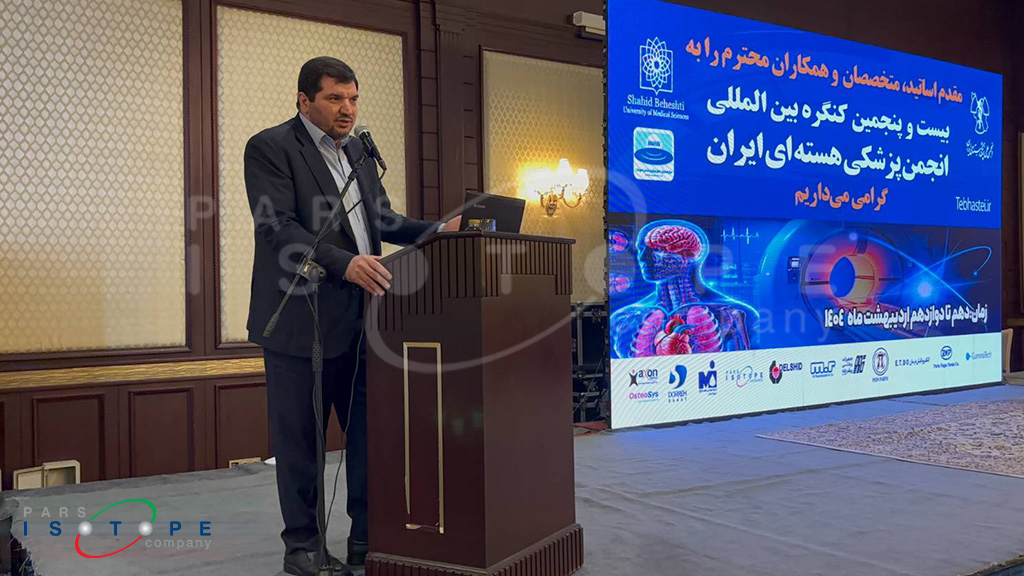Follow Us:
The CEO of Pars Isotope at the closing ceremony of the 25th Iranian Nuclear Medicine Congress: ‘Expanding production of new radiopharmaceuticals is among Pars Isotope’s top priorities.
At the closing ceremony of the 25th Iranian Nuclear Medicine Congress, Mr. Davarpanah, CEO of Pars Isotope, highlighted the key factors driving progress in the nuclear medicine industry. In his speech, he introduced Pars Isotope’s new radiopharmaceuticals and discussed important aspects of Iran’s Radiopharmaceutical Production and Development Center.
The closing ceremony was held on 2 May 2025 (coinciding with Teachers’ Day in Iran). On this occasion, Engineer Davarpanah extended his congratulations on Teachers’ Day and its significance, dedicating the day to honoring Iran’s nuclear medicine professors.
He continued by pointing to three main factors in the progress of the nuclear medicine industry and said: “Expert human resources, appropriate infrastructure, and advanced equipment are essential requirements for the development of this industry
He added: “Pars Isotope has taken significant strides in developing new radiopharmaceuticals. Increasing the number of products in the F-18 radiopharmaceutical portfolio as new diagnostic products, as well as the design, synthesis, and formulation of various FAP peptides as theranostic radiopharmaceuticals, are among the company’s latest and most notable achievements.”
At the conclusion of his remarks, the CEO of Pars Isotope spoke about Iran’s Radiopharmaceutical Production and Development Center, known as “TETRA”, and added: TETRA ranks among the largest and most comprehensive radiopharmaceutical production centers in the world, capable of meeting Iran’s domestic demand for radiopharmaceuticals for at least the next 50 years. This center spans over 36,000 square meters and includes 4 isolator lines, 3 lyophilizers for radiopharmaceutical kit production, 5 Phase I hot cells, 9 Phase II hot cells (making a total of 14 production lines) for radiopharmaceutical manufacturing. TETRA will soon commission its first production line, significantly enhancing Iran’s capacity to meet domestic nuclear medicine demands.

